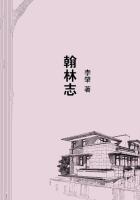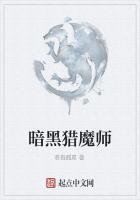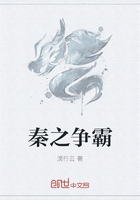----He was a fell despightful Fiend:
Hell holds none worse in baleful bower below:
By pride, and wit, and rage, and rancor keened;Of Man alike, if good or bad the Foe.
Thomson.
On the day following Antonia's death, all Madrid was a scene of consternation and amazement. An Archer who had witnessed the adventure in the Sepulchre had indiscreetly related the circumstances of the murder: He had also named the Perpetrator.
The confusion was without example which this intelligence raised among the Devotees. Most of them disbelieved it, and went themselves to the Abbey to ascertain the fact. Anxious to avoid the shame to which their Superior's ill-conduct exposed the whole Brotherhood, the Monks assured the Visitors that Ambrosio was prevented from receiving them as usual by nothing but illness.
This attempt was unsuccessful: The same excuse being repeated day after day, the Archer's story gradually obtained confidence.
His Partizans abandoned him: No one entertained a doubt of his guilt; and they who before had been the warmest in his praise were now the most vociferous in his condemnation.
While his innocence or guilt was debated in Madrid with the utmost acrimony, Ambrosio was a prey to the pangs of conscious villainy, and the terrors of punishment impending over him. When He looked back to the eminence on which He had lately stood, universally honoured and respected, at peace with the world and with himself, scarcely could He believe that He was indeed the culprit whose crimes and whose fate He trembled to envisage.
But a few weeks had elapsed, since He was pure and virtuous, courted by the wisest and noblest in Madrid, and regarded by the People with a reverence that approached idolatry: He now saw himself stained with the most loathed and monstrous sins, the object of universal execration, a Prisoner of the Holy Office, and probably doomed to perish in tortures the most severe. He could not hope to deceive his Judges: The proofs of his guilt were too strong. His being in the Sepulchre at so late an hour, his confusion at the discovery, the dagger which in his first alarm He owned had been concealed by him, and the blood which had spirted upon his habit from Antonia's wound, sufficiently marked him out for the Assassin. He waited with agony for the day of examination: He had no resource to comfort him in his distress.
Religion could not inspire him with fortitude: If He read the Books of morality which were put into his hands, He saw in them nothing but the enormity of his offences; If he attempted to pray, He recollected that He deserved not heaven's protection, and believed his crimes so monstrous as to baffle even God's infinite goodness. For every other Sinner He thought there might be hope, but for him there could be none. Shuddering at the past, anguished by the present, and dreading the future, thus passed He the few days preceding that which was marked for his Trial.
That day arrived. At nine in the morning his prison door was unlocked, and his Gaoler entering, commanded him to follow him.
He obeyed with trembling. He was conducted into a spacious Hall, hung with black cloth. At the Table sat three grave, stern-looking Men, also habited in black: One was the Grand Inquisitor, whom the importance of this cause had induced to examine into it himself. At a smaller table at a little distance sat the Secretary, provided with all necessary implements for writing. Ambrosio was beckoned to advance, and take his station at the lower end of the Table. As his eye glanced downwards, He perceived various iron instruments lying scattered upon the floor. Their forms were unknown to him, but apprehension immediately guessed them to be engines of torture. He turned pale, and with difficulty prevented himself from sinking upon the ground.
Profound silence prevailed, except when the Inquisitors whispered a few words among themselves mysteriously. Near an hour past away, and with every second of it Ambrosio's fears grew more poignant. At length a small Door, opposite to that by which He had entered the Hall, grated heavily upon its hinges. An Officer appeared, and was immediately followed by the beautiful Matilda.
Her hair hung about her face wildly; Her cheeks were pale, and her eyes sunk and hollow. She threw a melancholy look upon Ambrosio: He replied by one of aversion and reproach. She was placed opposite to him. A Bell then sounded thrice. It was the signal for opening the Court, and the Inquisitors entered upon their office.
In these trials neither the accusation is mentioned, or the name of the Accuser. The Prisoners are only asked, whether they will confess: If they reply that having no crime they can make no confession, they are put to the torture without delay. This is repeated at intervals, either till the suspected avow themselves culpable, or the perseverance of the examinants is worn out and exhausted: But without a direct acknowledgment of their guilt, the Inquisition never pronounces the final doom of its Prisoners.
In general much time is suffered to elapse without their being questioned: But Ambrosio's trial had been hastened, on account of a solemn Auto da Fe which would take place in a few days, and in which the Inquisitors meant this distinguished Culprit to perform a part, and give a striking testimony of their vigilance.















